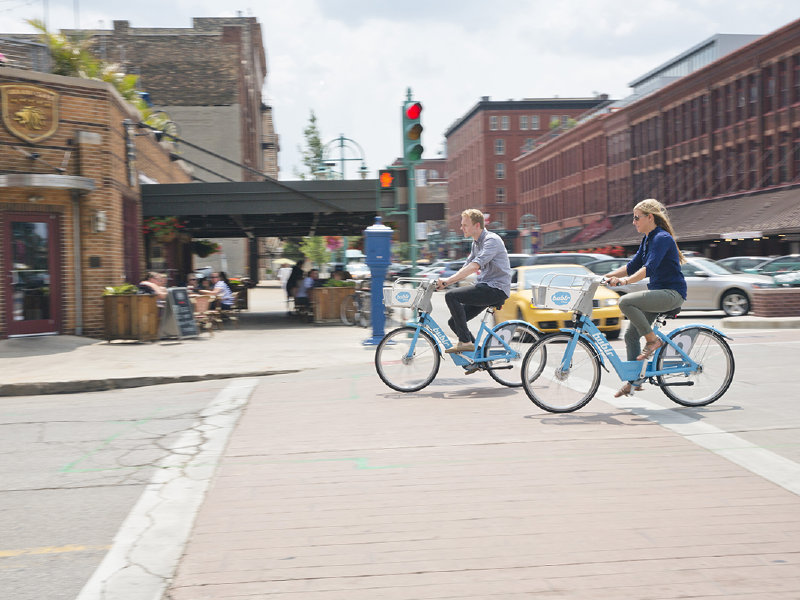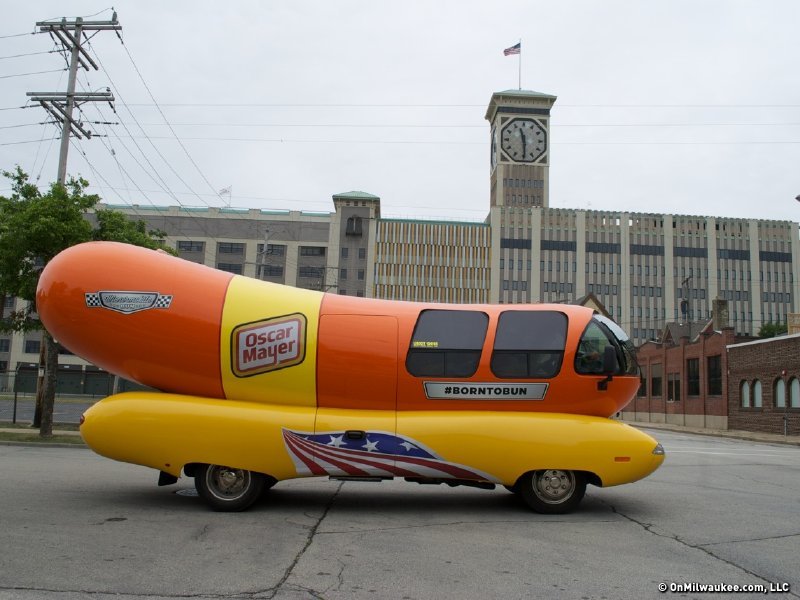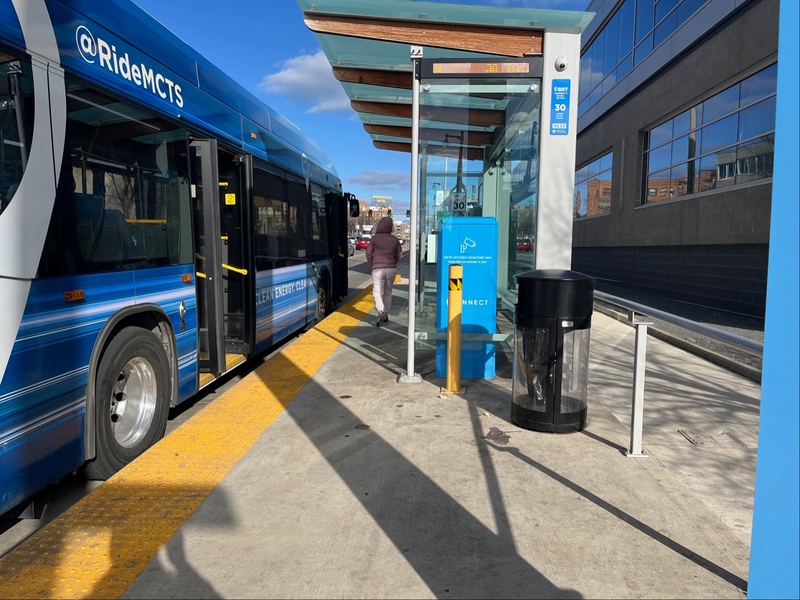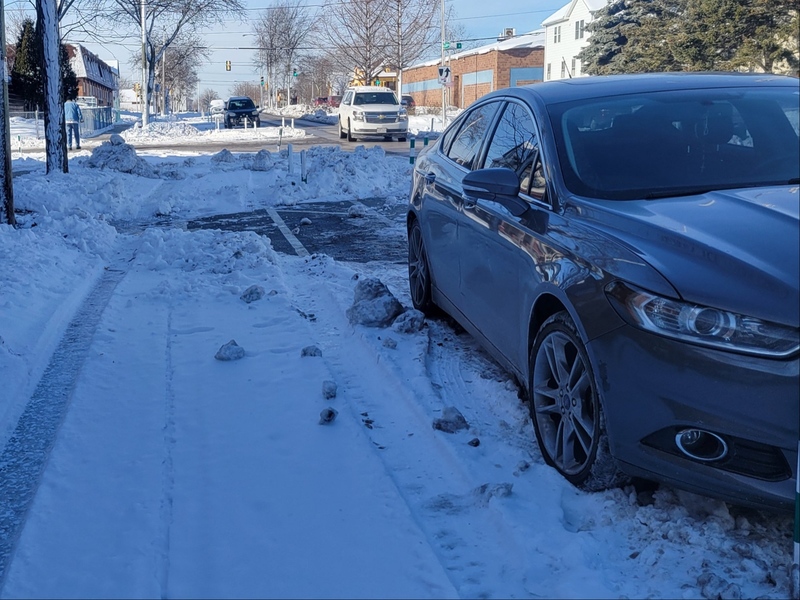Milwaukee's first bike share system rolled out last year and was subsequently rolled back in before winter. But while the wheels were only on the ground for a limited time, the company still deemed it a success, coasting through the finish line with an impressive 5,500 trips.
What was not so successful, however, was the confusing pricing structure.
So as Bublr gears up to return Monday, March 16, the company announced a new, simpler pricing structure. You can now pull a Bublr from its docking station at any time for $3 per half-hour, down from $7 last year. And, if you like how the system works, you can get a monthly pass for $15, down $5 from last year, which entitles you to unlimited 60-minute rides.
As an infrequent bike share user of the initial Bublr rollout, I found the original $7-per-day-provided-you-return-the-bike-every-half-hour policy to be confusing and limiting, especially given the infrequency of station placement at the time. A half-hour was a short enough time to keep me constantly worried that I was going to run over time and incur an extra charge, even on short trips.
I talked Kevin Hardman, executive director of Bublr Bikes, and he confirmed my feelings.
"We learned a tremendous amount last year. The advantage of starting small was that we got to put it on the ground and get a lot of feedback from customers. It was totally clear that people didn’t understand the pricing. The majority of people were confused."
"That really bothered us because you never want to confuse your customers. The whole thing with bike sharing is that it’s simple and easy. [The old pricing structure] was so difficult to explain."
So the team looked to simplify and lower the cost of entry.
"Bike sharing systems are priced in ways that are different than the way other things are priced," Hardman explained. "We wanted to get it more in line with transit, Netflix and gym memberships. [Under the old pricing structure], if you wanted to take a bike from City Hall to the Public Market it cost you $7. We wanted to create an option that a ton of people would want to try out."
Then if users find value in the service, they can jump into a monthly subscription, getting unlimited 60-minute rides.
As a result of these price and time changes, Bublr has now become one of the most competitive bike shares in the country. "Now, we haven’t done exhaustive research, but we believe that’s the lowest cost of entry for any system in the country. And we’re one of the few systems in the country that offers 60 minute trips."
"If you’re a visitor to Milwaukee," Hardman said, "a one-month subscription is the best deal in the country."
So what else is new?
A new station has been installed at Brady Street and Humboldt Avenue, which places the system closer to dense residential areas for the first time. "The whole point of bike share is to get where people live. We hope this will become an important part of that neighborhood's transportation choices."
More stations are forthcoming, but nothing has been finalized with the city. "Trust me, nobody wants to announce this more than I do. It’s been a larger effort than any of us thought, but the city is totally in, and we’re working continuously to make it happen."
The bikes should also be easier to use. "A lot of people didn’t understand how to use the built in lock, so we’ve redone all of our labels to make everything clear."
And now there's a new app, to ensure you aren't left with or without a bike at an inadequate station. "You get real time information to tell you where the stations are, if there are bikes available to use or spaces to park your bike when you're done. We’ve also reorganized our website to focus on the users of the system."
New prices, new stations, new decals, new app, new website and a high of 60 degrees on Monday. What more could you ask for?
Jason McDowell grew up in central Iowa and moved to Milwaukee in 2000 to attend the Milwaukee Institute of Art and Design.
In 2006 he began working with OnMilwaukee as an advertising designer, but has since taken on a variety of rolls as the Creative Director, tackling all kinds of design problems, from digital to print, advertising to branding, icons to programming.
In 2016 he picked up the 414 Digital Star of the Year award.
Most other times he can be found racing bicycles, playing board games, or petting dogs.







